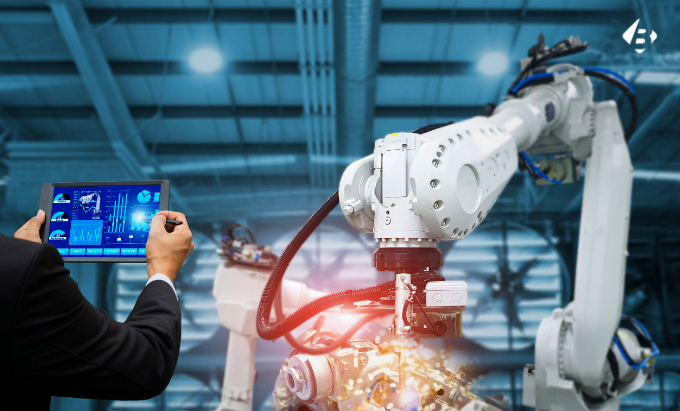
Robotics and automation are rapidly transforming our world, impacting industries, redefining workforces, and sparking fierce ethical discussions. From manufacturing and healthcare to transportation and logistics, robotic systems are increasingly taking over tasks once performed by humans. This raises critical questions about the future of work, the potential for displacement, and the ethical implications of this technological revolution.
The Rise of the Machines:
The pervasiveness of robots and automation is undeniable. Industrial robots have long been commonplace in factories, performing repetitive tasks with unfaltering precision. But the capabilities are steadily expanding. Today, robots are venturing beyond factory floors, performing intricate surgeries, delivering packages, and even writing news articles. This trend is driven by advancements in artificial intelligence, machine learning, and sensor technology, which are enabling robots to learn, adapt, and collaborate with humans in increasingly complex tasks.
The Impact on Jobs:
While automation offers numerous benefits, its impact on jobs cannot be ignored. As robots become more capable and cost-effective, some jobs are likely to be automated, leading to potential displacement and unemployment. This raises concerns about rising income inequality and the need for workforce retraining and reskilling initiatives.
Ethical Considerations:
Beyond job displacement, the widespread use of robots and automation raises a host of ethical concerns. Some key issues include:
- Bias and discrimination: Machine learning algorithms can perpetuate biases present in the data they are trained on, leading to discriminatory outcomes.
- Privacy and data security: Robots collecting and analyzing vast amounts of data raise concerns about privacy violations and the potential for misuse of personal information.
- Accountability and transparency: When automated systems make decisions affecting people’s lives, questions arise regarding accountability and responsibility.
Navigating the Transformation:
The rise of robots and automation is inevitable. However, it is crucial to approach this transformation with a focus on human well-being and ethical considerations. Here are some key steps:
- Investing in education and reskilling programs: Governments and businesses need to collaborate to prepare workers for the changing job market by providing training and resources for new skills.
- Developing ethical guidelines and regulations: Clear and robust ethical frameworks are needed to guide the development and use of robotic and automation technologies.
- Promoting open dialogue and collaboration: Stakeholders from diverse backgrounds need to come together to discuss concerns, explore solutions, and ensure a just and equitable transition to a future shaped by automation.
Conclusion:
Robotics and automation are powerful tools with the potential to revolutionize industries and improve our lives. However, navigating this transformation requires a proactive and responsible approach. By addressing the potential challenges and prioritizing ethical considerations, we can harness the power of these technologies to create a future that benefits all of humanity.
Are you ready for the robot revolution? Share your thoughts and join the conversation about the future of work and technology.
The rise of robotics and automation is reshaping industries, but the ethical considerations are crucial. The potential for job displacement raises concerns about inequality. How can we ensure a balance between technological progress and the well-being of the workforce?
As we embrace robotics and automation, the ethical dilemmas become increasingly complex. From biases in algorithms to data security concerns, it’s clear we need robust regulations. How do you envision a future where automation coexists with ethical considerations and safeguards individual rights?
The transformative power of robotics is undeniable, but the impact on jobs and ethical concerns must be addressed. Investing in education and ethical guidelines is key, but how can we ensure a just and inclusive transition? What role should governments, businesses, and the public play in shaping this future?
Robotics and automation offer incredible potential, but ethical considerations are paramount. The need for education and reskilling is evident, but what steps can individuals take to adapt to this changing landscape? How can we foster a dialogue that includes diverse perspectives to navigate these transformations responsibly?